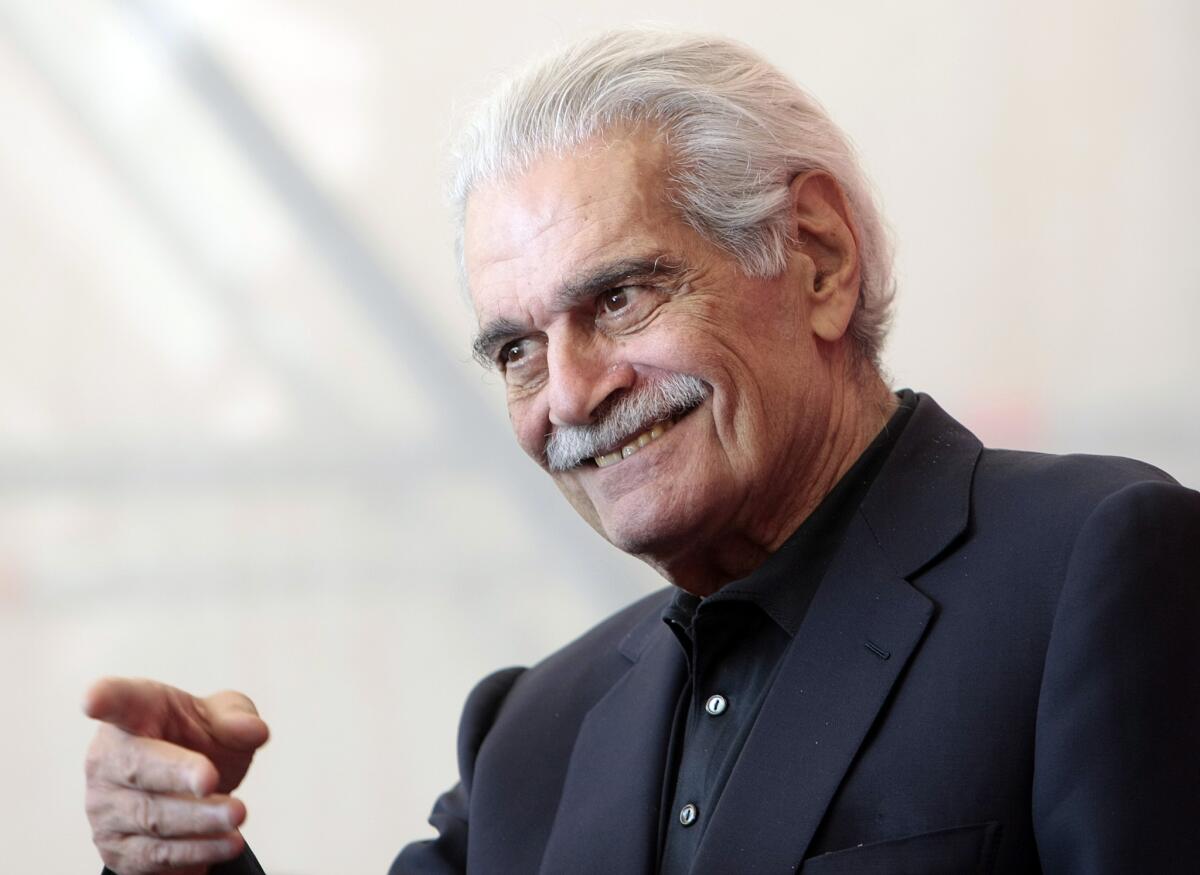In Egypt, Omar Sharif’s death met with sadness -- and a young man’s shrug

In this Sept. 10, 2009, photo, Egyptian actor Omar Sharif appears during the photo call for the film “The Traveller” at the Venice Film Festival in Venice, Italy.
Reporting from Alexandria, Egypt — In Omar Sharif’s native city, word of the actor’s passing drew proud recollections from some of his contribution to world culture — but also blank stares from some younger Egyptians.
“I am sorry, but I don’t know of this person,” said 20-year-old Mohammed Safr, a gangly engineering student.
As word spread late Friday afternoon of Sharif’s death, most Egyptians were hurrying home on their way to iftar, the evening meal that breaks the daylong fast during the Muslim holy month of Ramadan.
But a few stopped to share their thoughts. Ahmed Sarwar, an Alexandrian physician in his late 60s, recalled a sense of national pride when Sharif vaulted to international fame in the 1960s.
He was already a star at home, after his debut in the 1954 Egyptian drama later released in English as “The Blazing Sky.” With films like “Lawrence of Arabia” and “Doctor Zhivago,” though, he proved his broader appeal, to the delight of many compatriots.
“Before that, no one had thought of Egypt in this way, as having something other than camels and the pyramids to offer the world,” said Sarwar.
Ramadan is the prime season for Egyptian TV dramas, so big-money advertisement contracts prevented an immediate reshuffling of programming to air specials on Sharif. So social media moved to the fore, with Egyptian artists and ordinary people taking to Twitter and Facebook to share their memories of the actor and his films.
Cairo’s Prime magazine tweeted: “We grew up with your movies and with your passing a bit of us dies.”
Egyptian officials put a nationalist flourish on their tributes to Sharif.
“Despite achieving global fame and great success in America, he always remained deeply in love with Egypt, so close to this land,” the culture minister, Abdel Nabawi, told the state news agency MENA.
In Alexandria, a Hollywood-glamour portrait of Sharif holds pride of place alongside the sweeping staircase of the city’s faded but still grand Opera House. But little remains of the city’s cosmopolitan culture that was a literary wellspring between world wars.
Sharif was in some ways a product of Alexandria’s Levantine melting pot, born to a Greek-Lebanese Eastern Rite Catholic family and christened Michael Chalhoub. His working life got off to a prosaic start in the family’s lumber business, but he quickly made his way abroad for studies at London’s Royal Academy of Dramatic Art.
------------
For the record
July 10, 12:25 p.m.: An earlier version of this article stated that Sharif born to a Roman Catholic family. Sharif’s family was Greek-Lebanese Eastern Rite.
------------
Although he had lived in seclusion as his health deteriorated in recent years, Sharif’s life and work were back in the public eye earlier this year with the death of his ex-wife Faten Hamama, who in her day was one the country’s best-known movie stars. She died in January at the age of 83.
Their romance was a tempestuous one; after she and Sharif met and fell in love on the set of “The Blazing Sky,” Hamama divorced her then-husband, an Egyptian director, and Sharif, who was born a Christian, converted to Islam in order to marry her. They divorced in 1974.
Despite his international appeal, Sharif at times had to navigate the political minefield of the Middle East. In 1968’s “Funny Girl,” his on-screen kiss with his Jewish co-star Barbra Streisand came less than a year after the 1967 Arab-Israeli war, and the resulting uproar nearly cost him his Egyptian citizenship.
Special correspondent Nabih Bulos contributed from Amman, Jordan.
Follow @laurakinglat on Twitter for news out of Egypt
More to Read
Sign up for Essential California
The most important California stories and recommendations in your inbox every morning.
You may occasionally receive promotional content from the Los Angeles Times.







